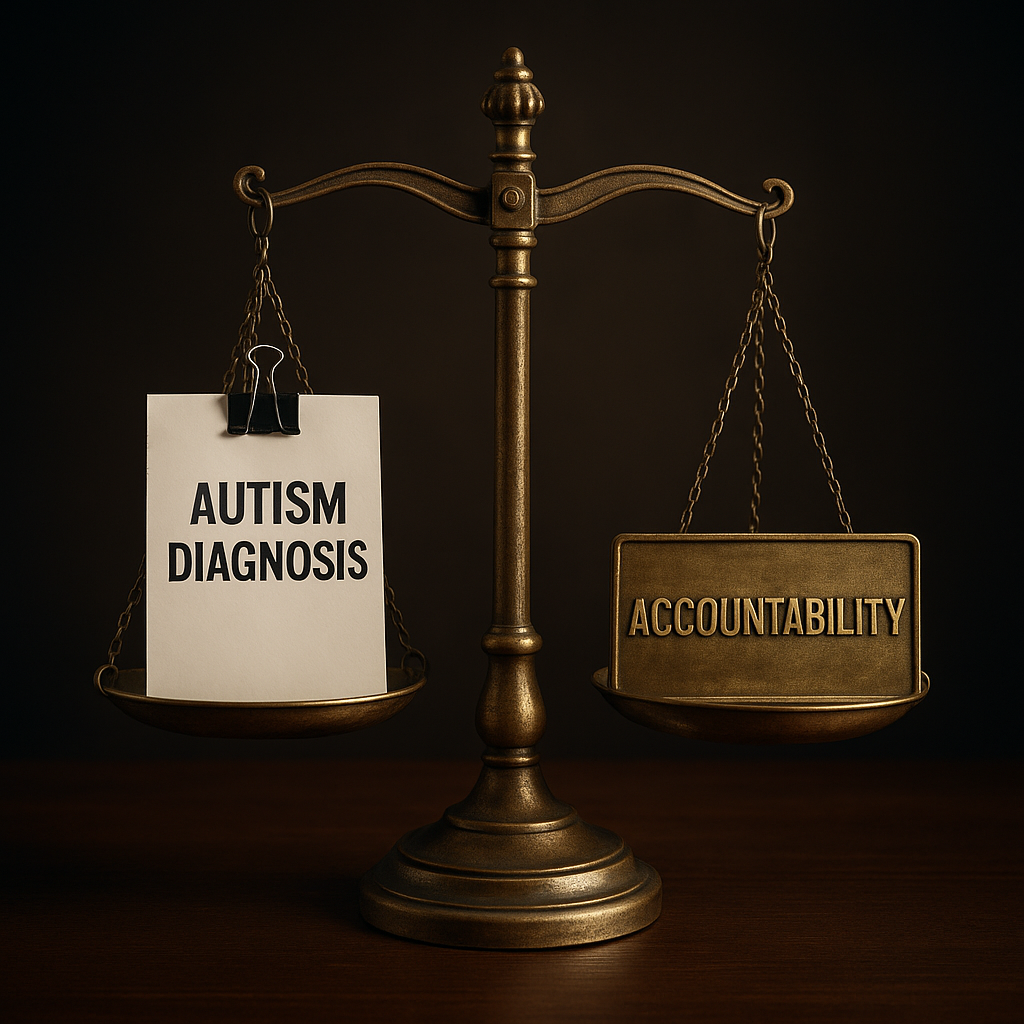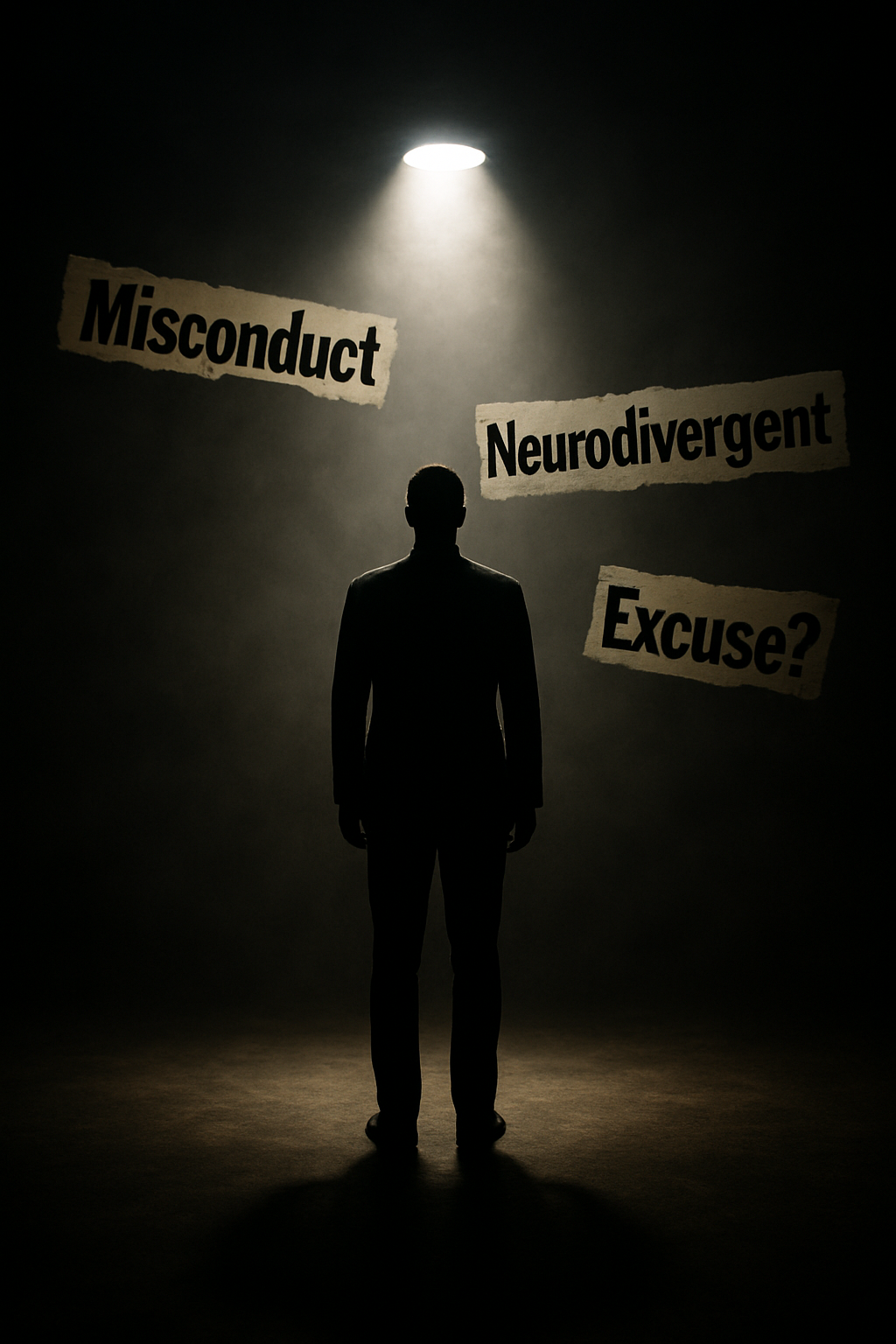Let’s be honest. If you’ve ever been caught doing something mortifyingly awkward, like laughing at a funeral or emailing your boss the wrong attachment, there’s a tiny part of you that wishes you could say, “Oh, sorry, I’m neurodivergent.” But when exactly does a diagnosis help explain behaviour, and when does it become an escape hatch from accountability?
This week, the internet’s been quietly simmering over Gregg Wallace’s recent autism diagnosis, served up alongside a sizzling platter of misconduct allegations. The timing, some argue, is a bit too perfectly plated.
So: are we witnessing someone finally understanding themselves? Or just trying to save face in the dessert round of public opinion?
What’s Actually Happened?
In July 2025, the BBC and Banijay released a bombshell report revealing that Wallace, 60, had 45 upheld allegations of misconduct against him, dating from 2005 to 2018. These included:
- Repeated inappropriate sexual comments
- Racist and homophobic remarks
- Bullying and gaslighting of staff
- One report of unwanted physical contact
- Being “in a state of undress” in work contexts
Only one incident took place after 2018, suggesting much of the behaviour had been long-standing. As the report dropped, so did the BBC’s tolerance. Wallace was swiftly told he’d not be returning to MasterChef.
And then, plot twist, Gregg Wallace reveals he’s been diagnosed as autistic. He explains that his humour masked social confusion, and that his condition made reading others difficult.
A diagnosis that, according to some, arrived just in time.
Let’s Talk About Timing
Receiving a late diagnosis, whether it’s autism, ADHD, or dyspraxia, can feel like the missing jigsaw piece you didn’t know was missing. Suddenly, your whole life story makes sense. But the jigsaw image still matters.
In Wallace’s case, the diagnosis seems to be offered less like insight and more like an explanation for bad behaviour. And this is where the backlash begins.
Seema Flower, disability activist and director of Blind Ambition, called out the damage this framing could cause. “Autism is not a get-out-of-jail-free card,” she said, warning that using a diagnosis to excuse misconduct risks stigmatising all autistic people as “socially inappropriate”.
The National Autistic Society echoed this: people on the spectrum already face misconceptions about empathy and boundaries. Adding Wallace’s narrative to the pot feels like stirring in too much salt, it overpowers everything else.
Is Late Diagnosis Just Trendy Now?
We’re in an era where diagnosis rates are soaring. ADHD, autism, dyslexia, labels that were once taboo now sit proudly in social media bios. And that’s not a bad thing. Many of us were left undiagnosed for decades, limping through school and work environments that made us feel defective.
But visibility comes with risk.
When high-profile people pair their diagnosis with harmful actions, especially without visible growth, remorse, or understanding, it breeds public cynicism. It suggests that “neurodivergence” is the new “sorry if you were offended.”…. it isn’t.
Explanation Is Not Exoneration
Let’s clarify something. An explanation helps us understand behaviour. A diagnosis gives context, language, and often, relief. But an explanation is not the same as exoneration.
Saying “I’m autistic, that’s why I made people uncomfortable for 13 years” doesn’t undo the trauma. It doesn’t rebuild the confidence of staff who worked in fear. And it doesn’t un-send that inappropriate email, Greggers.
True self-awareness means looking at our actions and saying, “Yes, this may have been influenced by my neurology – but it still caused harm.”
So What Do We Do With This?

The neurodivergent community is already swimming upstream. We’re trying to work, love, and live in a world that’s built for very linear brains. But we also have to live with integrity.
And if you’re reading this with your own late diagnosis, like me, you may be feeling defensive. “But what about the times I genuinely didn’t understand the rules?” Valid. But that doesn’t make it OK to hurt others. Especially not for over a decade.
We’re allowed to be complex. We’re allowed to say: “I didn’t know better then. I do now.”
That’s growth. That’s accountability. That’s being ND and decent.
In the End, It’s About Power
Wallace’s story isn’t just about autism – it’s about power. He was the star. He shaped the workplace environment. And people in power have the responsibility to check themselves, diagnosis or not.
Autism doesn’t cause sexism, racism, or bullying. But it may cause communication glitches, confusion over tone, or rigidity. Conflating the two does no one any favours.
Final Thoughts
Maybe Gregg Wallace has finally learned who he is. Maybe he truly was masking for years, fumbling through social rules like a blindfolded ballroom dancer. But if that’s the case, the next step isn’t explaining the missteps.
It’s making amends.
So here’s the question I leave with you:
How do we balance empathy for someone’s neurodivergence with the necessity for accountability, and who gets to draw that line?
*This image is AI-generated with prompts made by me and serves no educational purpose, it is only used to highlight certain aspects of this article.




